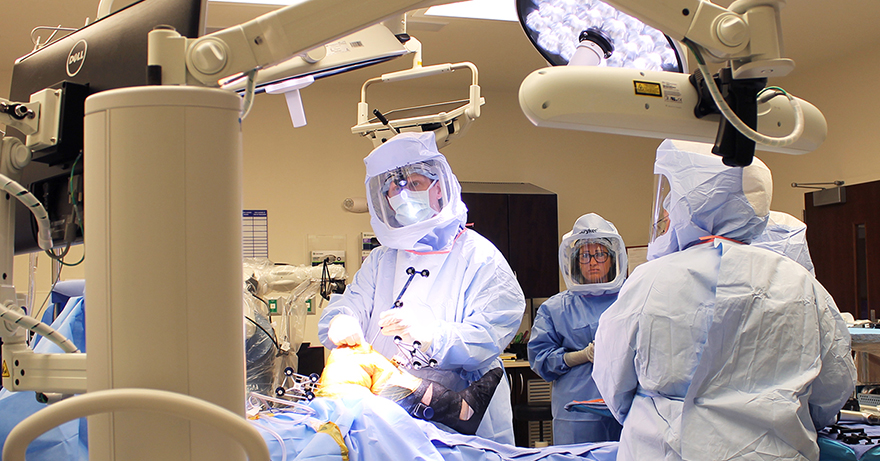Time for Joint Camp
- Fall 2018

Joint Camp is a free educational session for those having, or thinking about, knee or hip joint replacements. It introduces patients to team members, services and steps they can take to have the best outcome possible from their joint replacement.
The demand for joint replacements in the U.S. is expected to rise in the next decade. Total knee replacements are estimated to increase by 673 percent by 2030, while primary total hip replacements are estimated to increase by 174 percent.
To help local patients who may be looking at partial knee, total knee or total hip replacements, Brookings Health System recently added Mako robotic-arm assisted surgery to its line of available orthopedic services. Now Brookings Health is introducing Joint Camp this fall to further help people successfully return to their activities of daily living after joint replacement.
“The goal of Joint Camp is to answer any questions patients, or potential patients, may have before their joint replacement. We want to get them in the mindset of what it will take on their part to have a successful procedure,” said Operating Room & CSR Director Candy Johnson. “Statistics show that preparing for joint replacement helps speed-up patient recovery and increases a patient’s satisfaction with a new joint.”
A 60-minute Joint Camp session is presented by team members, including nurses and therapists, who regularly assist patients on their joint journey. Topics covered include an explanation of joint pain, physical and occupational therapy preparation, how to prepare the home for safety, what to bring with to the hospital and what to expect the day of surgery. In addition, patients will learn about available services, such as swing bed, short-term rehabilitation, home health and outpatient therapy, to help them plan for recovery and going home.
Patients are also encouraged to bring along a support person to Joint Camp. The support person works with the patient to learn therapeutic exercises and expectations for post-surgical care.
“People who have joint replacement surgery have several restrictions, including driving and heavy lifting,” said Johnson. “The support person should plan on helping with those restrictions as well as any other needs the patient has during recovery.”
After attending Joint Camp, patients will have the necessary tools and understanding for a successful joint replacement surgery.
Interested in attending Joint Camp? Register for an upcoming session online at www.brookingshealth.org/JointCamp or call (605) 696-8888.

